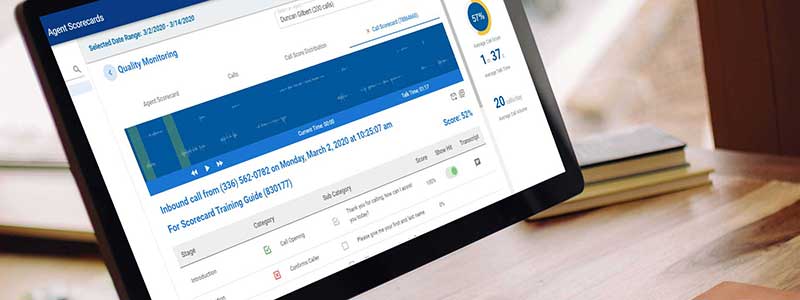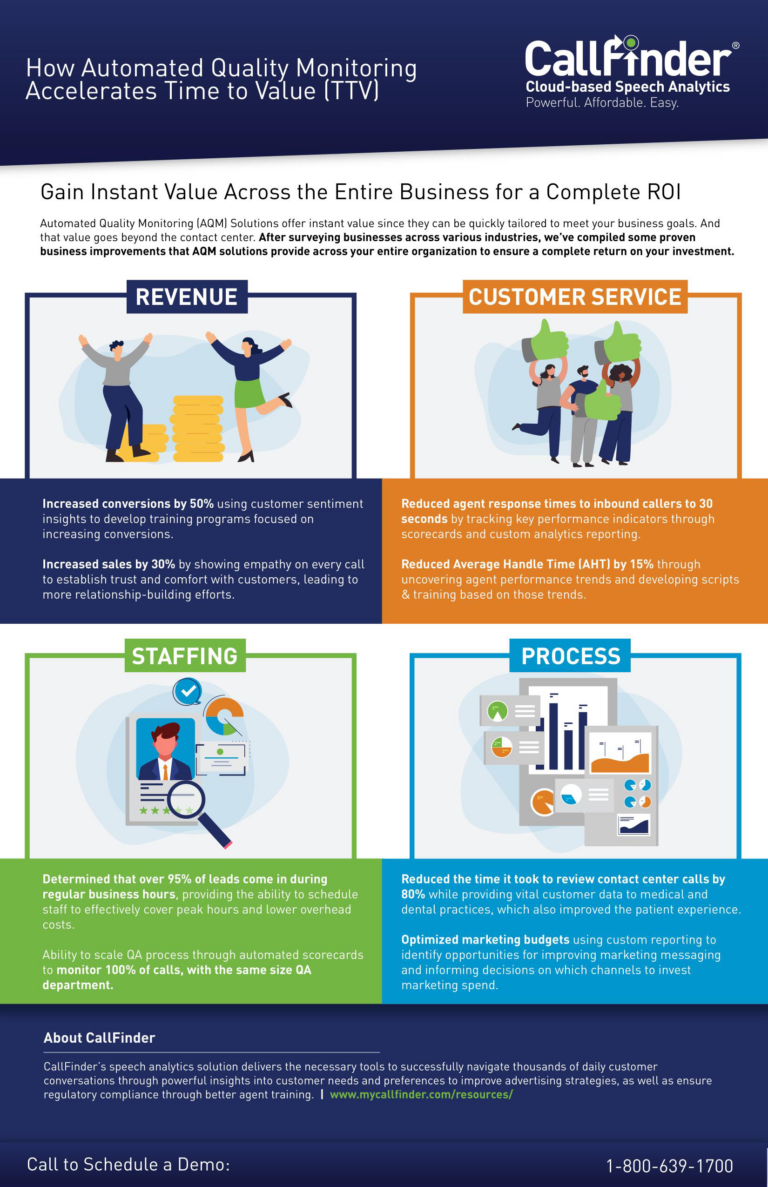Importance of Monitoring Calls
As the current pandemic continues to affect both people and businesses, monitoring calls for quality assurance is more important than ever. Contact centers and customer service teams are seeing a dramatic increase in complaints, requests, and other interactions.
A recent Harvard Business Review study looked at CS calls among 20 companies over a variety of industries. The study reveals that the number of calls rated “difficult” doubled from 10 to 20% between March 11th and March 26th. Callers’ anxiety and emotions were noticeably higher, as well.
And that’s just two weeks of data. Tensions in the contact center have surely continued to rise since then. Even before the pandemic, customers bemoaned a lack of human interaction when contacting businesses. Now they desire that interaction more than ever, and most people care more about empathy and communication than price points and flashy marketing.
It is clear that businesses need to adjust their customer service tactics, and the contact center is the best place to start. Here are 3 ways businesses can modify how they approach customer service in a time of crisis.
1. Train Agents to Be More Flexible
Like many other people, a friend of mine had to cancel his upcoming wedding. While most businesses have been more flexible with refunds, this business held fast to its no-refund cancellation policy. Now my friend is frustrated and less likely to continue using their services. Of course companies must have policies in place as a failsafe, but in extenuating circumstances, businesses should make some allowances.
This starts with agent training. Businesses can train contact center agents to be more flexible about policies and less rigid when dealing with a difficult situation. If the company my friend worked with used a call monitoring system, they could have flagged that call and used it as a real-life example for training purposes. When agents are granted more leeway with their scripts (while still remaining compliant), they are more likely to express empathy for the customer and the situation.
The same Harvard Business Review study showed 27% of agents who received low scores on performance were more likely to be too rigid about company policies. Agents should be encouraged to work with customers to find a solution that benefits everyone. As a result, customers feel valued over a business’s policies.
2. Use Insights to Determine Customer Needs
Monitoring calls is a great way to really listen to what customers are saying. And it’s another way companies can be more attuned to customer needs. And not just what they say out loud. Speech to text tools can scan recorded phone conversations to help identify patterns and trends. This reveals customer insights that companies can use to implement changes to business processes.
These changes can be short-term, such as training contact center agents in the best ways to handle common situations, or long-term, such as establishing business and policy changes in order to avoid the situation altogether. Businesses can also use the data gained to create advertising that reflects the Voice of the Customer, using marketing strategies that are both empathetic and attuned to customers’ needs.
As customer expectations continue to change, companies need to be able to evolve with them. When businesses take note of customers’ concerns and complaints, and then make changes based on that feedback, it demonstrates to customers that they are truly being heard.
3. Monitoring Calls for Remote Agents
More contact center agents are working from home than ever before, many of whom are doing so for the first time. This can present a real challenge, especially for those who rely on the physical presence of their peers and managers to assist them when difficult circumstances occur. This can lead WFH agents to feel especially stressed and unprepared to help customers resolve their issues. But even if supervisors can’t actually be there with their agents as they field customer calls, it doesn’t mean they can’t offer valuable support.
Monitoring calls with an automated quality monitoring (AQM) solution provides 100% visibility into customer interactions. What does this mean?
Supervisors can improve contact center quality assurance to:
- Stay abreast of agent performance goals
- Locate where agents are struggling
- Work with agents to make improvements
They can also give agents the tools they need to resolve common customer complaints. This reduces the average handle time and passing customers around the company. And an AQM system provides an efficient way for managers to review calls with agents. This process pinpoints exactly where agents need extra training as well as where their strengths lie. This feedback can help agents feel empowered and more confident in their customer interactions, no matter where they may occur.
What’s the key to success for businesses in times of crisis? Focus on the customers, not profits. Customers need to know that businesses care about their needs and concerns. When the crisis passes (and it will pass), customers will remain loyal to the businesses that treated them like people.











